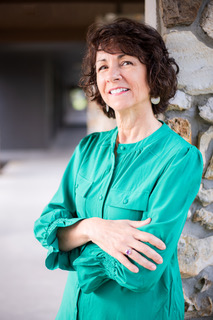
I’ll admit up front what most would agree to—2020 hasn’t been my favorite year. The changes brought about by the pandemic—my husband’s job furlough, the dangers of working in a healthcare environment, and the stress of helping my aging parents as they sheltered at home have taken their toll.
Add to this the scarcity of supplies, uncertainty about the future, and the difficulty of ministering to our church body during COVID-19, and I’ll readily admit—this year has stretched me.
I’d be lying if I said I haven’t mourned the losses. While no one close to me has died, I’ve sorrowed over those who have. On a smaller scale, I’ve shed a tear or two over the once-in-a-lifetime vacation. Over my granddaughter‘s first piano recital. Over the week at the beach. And my favorite writer's conferences.
Like you, I won’t miss the fear, the masks, or the six-foot distancing in the grocery store—and everywhere else. I look forward to enjoying people again instead of secretly wondering if they’re carrying a virus that could endanger my family’s health.
But in the wreckage of the pandemic I’ve found treasure—sparkling gems worth showcasing. Like other challenging times, 2020 has taught me lessons I’ll benefit from for a lifetime. We have changed as a society in a major way, but in some ways for the better.
Here are ten things I hope never go back to normal after COVID-19.
Photo Credit: ©GettyImages/RomeoLu
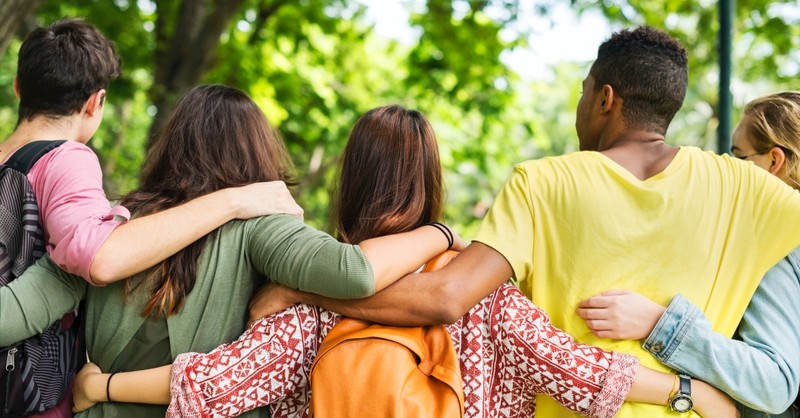
1. Appreciation for the Small Blessings
Hugs and handshakes, children playing on a playground, fully-stocked grocery store shelves. Church potlucks. Clorox wipes. Toilet paper and unmasked faces. Gathering together as friends, family, and congregations without fear.
Even though we’re not on full lockdown anymore, we’re still feeling the absence of freely hugging all our loved ones and our favorite things like concerts, sports games, and big celebrations. But it has been so sweet to appreciate the moments where we do actually get to see friends face to face and it feels like a breath of fresh air.
Sadly, we often fail to appreciate the gifts in our lives until they’re taken away. This has certainly been true for me. COVID-19 has helped me feel and voice my appreciation for so many things I’ve taken for granted. I hope this never goes back to normal.
2. Compassion
From the doctors and nurses serving in COVID-19 units to neighbors sharing groceries and toilet paper, compassion has abounded during this recent crisis.
A woman on our neighborhood Facebook page offered to shop for elderly and immuno-compromised residents. Another loaned her iPad to a neighbor so she could “see” and talk to her husband quarantined in a nearby nursing home.
A third volunteered to help floundering parents homeschooling their children. It’s rare that a whole people has experienced something this drastic together, and with that common understanding has brought a beautiful togetherness. Compassion trickled from every tender heart as our community navigated the new normal. I hope this never goes back to normal.
Photo Credit: ©Getty Images/Rawpixel
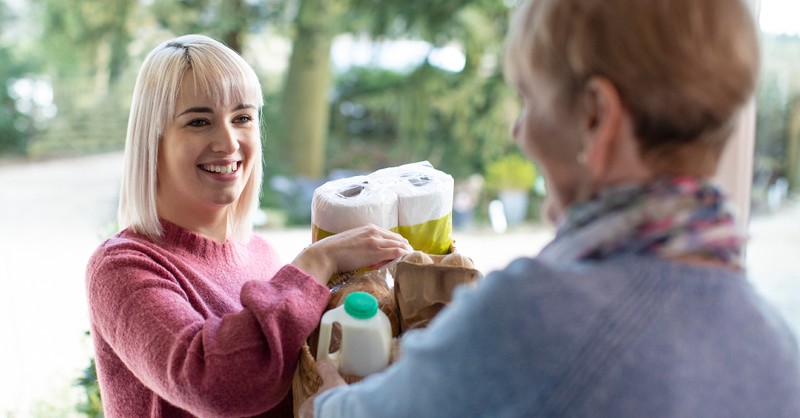
3. Creativity
Americans are creative people, but ease and affluence has stifled this lovely quality in recent years. Goods, services, and businesses chugged along doing what they’d always done with little innovation because it worked.
Once the virus hit, and we could no longer operate in the status quo, creativity flourished again.
Responding to the need for protective masks, women dragged out their dusty sewing machines and fabric remnants to produce face coverings for their community. A distillery in town converted part of their operation to make hand sanitizer. A printing company created face shields for local schools.
Businesses figured out ways to adapt and stay afloat. Restaurants took their food on the road in retrofitted food trucks. Everywhere you turned, creativity abounded. I hope this never goes back to normal.
4. Togetherness despite Limitations
Grandparents who couldn’t visit in person read bedtime stories over FaceTime. Sisters who missed their weekly coffee date brewed their own java and chatted over Zoom.
Unwilling to accept that they couldn’t visit their loved ones in person, family members stood outside nursing home windows and talked on the phone. Nurses facilitated daily FaceTime calls between hospitalized patients and their families.
A friend played videos of her grandkids for her father in a nursing home during a Zoom call to keep him abreast of their recent activities. Families organized drive by graduation parties, birthday parties, and baby showers.
Friends and family members unable to gather in person played board games “together” over Zoom. Unwilling to accept extended periods of isolation, people have brainstormed creative and touching ways to nurture and grow the relationships that matter most. I hope this never goes back to normal.
Photo Credit: ©GettyImages/Daisy-Daisy

5. A Greater Appreciation for Teachers and Homeschooling Parents
As parents everywhere assumed full responsibility for the day-to-day education of their children, they gained a greater appreciation for what it takes to educate a child.
Patience with endless questions, ingenuity to motivate a reluctant learner, and the always-challenging dynamics of technology make education during the best of circumstances difficult, but during a pandemic? Whew! Parents no longer take their child’s teachers for granted.
And those who voluntarily choose to educate their kids at home every day without a pandemic? Instead of questioning their sanity or doubting their abilities, award those brave folks the medal of valor!
Appreciation for those who spend their lives educating children is always timely. I hope this never goes back to normal.
6. A Renewed Interest in Reading and Writing
With restrictions on social gatherings, meetings, and other normal activities, many found themselves with more down time on their hands. Some binged on Netflix, but others returned to the time-honored pastime of reading.
One friend of mine pulled twenty books that had languished on her bookshelf for years and started reading. Another organized a weekly online book club meeting with friends. A third pulled out cards and stationery and wrote notes of encouragement to every member of her family. A new grandmother, inspired by the birth of her first grandchild, began a memoir project she’d talked about for years.
These time-honored, wholesome activities felt easy to push off because we “didn’t have time,” but maybe we now see that we do. I hope this never goes back to normal.
Photo Credit: ©Getty Images/Manuel Tauber-Romieri
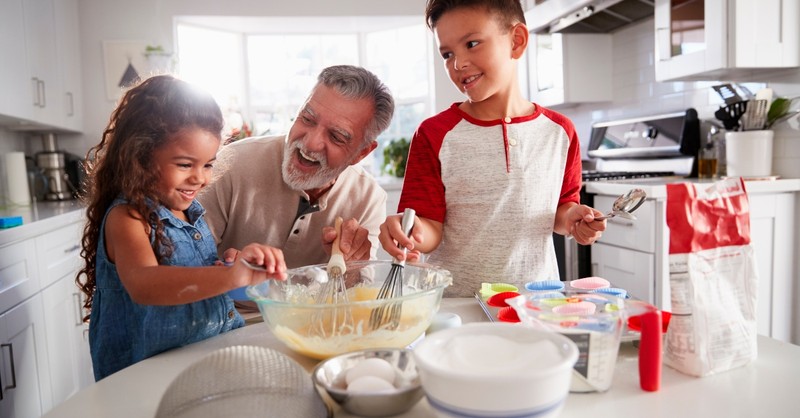
7. An Increase in Family Meals and Cooking at Home
Because restaurants closed and after school activities were suspended, most families found themselves cooking and eating at home more than they’d done in years. Meal prep became a group effort, and leisurely sit-down dinners once again became the norm.
Diets improved as fast food meals gave way to more healthy fare. With no activities to rush off to, the pace slowed and conversation flowed.
Homework no longer took center stage. Board games followed meal time as families looked for ways to fill the evening hours. People saved money, grew closer together, and lost weight by eating at Mom’s Kitchen. I hope this never goes back to normal.
8. Spiritual Innovation
Churches learned to think outside the box and find innovative ways to minister. Pastors with no staff or IT training learned to do Facebook Live and Zoom. They brought church to the people rather than people to the church.
Broadcasting from empty sanctuaries or their own living rooms, they sought the best ways to connect with their members. Sunday school classes, determined to stay in touch and grow spiritually, met over the computer.
Congregations held parking lot services, outdoor worship, and drive by communion. A church in Ohio planted signs at the edge of their parking lot that said Drive through Prayer. Dozens of neighbors swung into the lot for quick, socially-distant, but heart-felt prayers to calm their fears and sooth their angst.
Instead of derailing the church’s growth, in many ways the pandemic has helped it expand. Churches are reaching people through technology who might never have worshipped in a traditional congregation within the four walls of a building. Time will reveal the eternal fruit of the church’s spiritual innovation. I hope this never goes back to normal.
Photo Credit: ©Getty Images/monkeybusinessimages
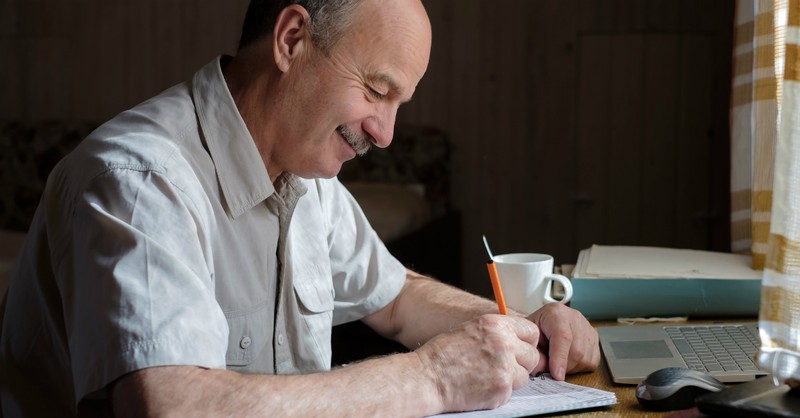
9. A Return to Bible Reading and Prayer
Pre-COVID-19, if you asked people what hindered them from spending quality and quantity time in Bible reading and prayer, you’d hear the word busyness a lot. For many, COVID-19-induced limitations have become an invitation to spiritual renewal.
Without a lengthy commute, they have time to linger with the Scriptures, start that Bible study they’ve always wanted to do, and pray for more than a minute or two.
With evenings free, online Bible studies have popped up everywhere as men and women “gather” to explore God’s Word. Several of my friends, experiencing the marital challenges that come from sheltering at home, committed to meet weekly over Zoom to do the Revive Our Hearts 30-Day Husbands Encouragement Challenge.
Instead of mindlessly scrolling through social media or television, many Christians have spent their extra time in God’s presence. I hope this never goes back to normal.
10. A Right Perspective of Ourselves
In pre-COVID-19 days, when we enjoyed health, wealth, and freedom, we felt powerful and independent. We were invincible. Buoyed by our successes, we felt in control and secure. When COVID-19 restricted our freedoms, threatened our health and wellbeing, and impacted our ability to earn and spend money, much of our self-sufficiency evaporated.
A profound sense of our own mortality sparked widespread fear. We learned, some for the first time, that we are not the master of our own destiny. A greater Power rules the world.
This truth has been life-changing when paired with faith. Although we’ve taken prudent measures to keep ourselves and our families safe, we’ve refused to live in fear, knowing God alone holds the power of life and death.
Recognizing our impotence and His power, we’ve learned to pray for His protection, then do what He calls us to do despite potential danger. We’ve discovered God is our provider, not ourselves or our government, and we can trust Him.
“When we are weak,” Paul in 2 Corinthians 12:10 reminds us, “He is strong.” In the midst of the COVID-19 chaos, we’ve tapped into the peace that defies all understanding and discovered that the safest place to be is in the palm of God’s hand.
I hope this never goes back to normal.
Photo Credit: ©GettyImages/Koldunova Anna
Originally published Monday, 14 September 2020.
